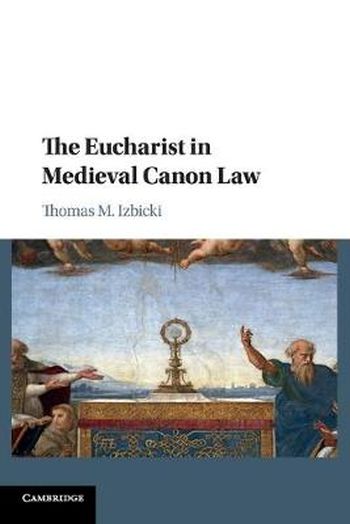
Thomas Izbicki presents a new examination of the relationship between the adoration of the sacrament and canon law from the twelfth to fifteenth centuries. The medieval Church believed Christ's glorified body was present in the Eucharist, the most central of the seven sacraments, and the Real Presence became explained as transubstantiation by university-trained theologians. Expressions of this belief included the drama of the elevated host and chalice, as well as processions with a host in an elaborate monstrance on the Feast of Corpus Christi. These affirmations of doctrine were governed by canon law, promulgated by popes and councils; and liturgical regulations were enforced by popes, bishops, archdeacons and inquisitors. Drawing on canon law collections and commentaries, synodal enactments, legal manuals and books about ecclesiastical offices, Izbicki presents the first systematic analysis of the Church's teaching about the regulation of the practice of the Eucharist.